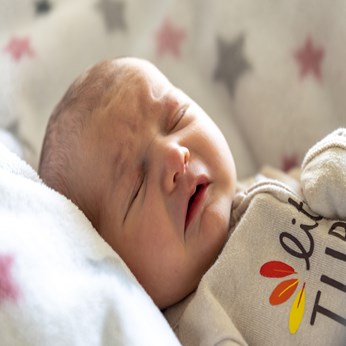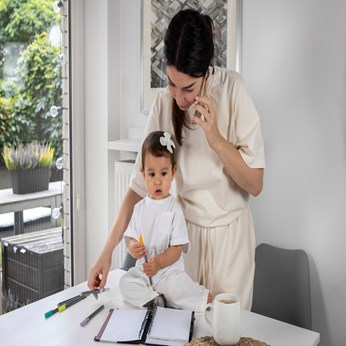Skincare Tips For Newborn Babies
A newborn baby is the apple of his/her parent’s eye, so they should take good care of a newborn’s skin and not expose it to chemicals; the baby’s skin should mature naturally. Chemicals in many of the baby skin products could be harmful and cause eczema, asthma and related allergies to the newborn’s thin skin and immature immune system. Parents should give the newborn skin a chance to develop its own protective barrier to get a new head-start to cope up with the modern world.
Research indicates that only water should be used in the first month and it was good to reduce exposure to chemicals and give the baby’s skin a chance to mature naturally. This notion goes against the past belief of parents that it is best to use baby products for the newborn.
Here are a few valuable skincare tips for the newborn:
Take care to keep the cord area clean and dry; as far as possible leave the cord area alone and pat dry the area with a clean towel after a bath. Also take care to fold back the nappy at every change until the cord separates. You may use wet cotton wool to clean the area if soiled; avoid wipes and powders. Cord care for the sick or premature baby is different slightly, due to the increased risk of infection; you could use antiseptic solutions and/or powders for the first few days. Notify the hospital staff if the cord or surrounding area becomes red or smelly.
Ensure that you wash your hands thoroughly before and after carrying on baby-care especially cord care.
Use plain water and cotton wool to give the baby’s first few baths; this offers a protection to the delicate skin of the newborn from germs, chemicals and water loss. It is best to avoid the delicate area around the eyes; notify the members of the hospital staff if it is sticky. Leave alone the ears and nose and avoid use of cotton buds. You may use a baby comb to gently remove any debris from thick hair after delivery.

Vernix or the white sticky substance that covers your baby’s skin in the womb is the nature’s own moisturizer and should always be left to absorb naturally. The protective Vernix could be absorbed in babies that are overdue leaving a dry and cracked skin; just leave it alone as the top layer of the baby’s skin will peel off over the next few days, leaving perfect skin underneath.
Gradually introduce baby products free of colors and perfumes after the first month; this gives time for the newborn’s skin to develop a natural barrier. The skin of premature babies is all the more delicate; withhold the use of baby products until the approximate due date as their skin take much longer to mature.
Ensure that you wash all baby clothes and bedding in non-biological washing powder; avoid the use of fabric conditioners and if you must use mild ones that are free of colors and strong perfumes.
Introduce baby wipes after the first month only; once introduced ensure that the wipes are mild, free of alcohol and strong perfumes.
Lastly if necessary you can use a thin layer of barrier cream or a moisturizer in the nappy area; use products that are emollient based as they offer protection and do not dry the skin.
Take the next step toward your goals
Share your requirement and find the best care providers in your area
-
Looking for a caretaker’s job? Build your profile and get in touch with families in your vicinity.
-
Discover nannies, babysitters, cooks, housekeepers, pet sitters, and elder care under one roof.
-
Get all the support you need to run a successful care center.
-
Search for appropriate centers near you depending on your needs.
Care Corner Insights: Blog Library

Overnight Babysitters in Bellevue, WA for Business-Travelling NRI Parents: Safety & Policies
For many NRI parents living in Bellevue, WA, frequent business trips are a reality. While traveling, one of the biggest concerns is ensuring your children are safe, cared for, and emotionally supported during overnight stays. Overnight babysitters ca

Indian Home-Style Cooks in Queens, NY: Tiffin-Style Weekly Meal Prep from Your Kitchen
Queens, NY, is home to one of the most diverse food cultures in the country, and Indian cuisine holds a special place among families looking for authentic, comforting meals. While restaurant takeout is convenient, nothing compares to the taste and nu

Baby Sleep Problems: What is Sleep Regression and How to Handle It
If you’re a parent, you know that baby sleep is one of the greatest mysteries of life. One day your little one is snoozing like an angel, and the next day they’re suddenly waking up every hour, fussing, or refusing to nap. Before you panic, there’s a

What is Validation Therapy? A New Approach to Dementia Care
Caring for loved ones with dementia is one of the most emotionally challenging journeys a family can face. Traditional methods often focus on correcting memory lapses or redirecting confused thoughts—but that can sometimes lead to frustration, stress

What is a Part-Time Nanny and Do You Need One
Parenting is a beautiful journey, but let’s be honest—it can also be exhausting! Between work deadlines, household chores, and family responsibilities, sometimes there just aren’t enough hours in a day. That’s where part-time nannies step in, offerin

Part-Time Housekeeper Hiring in Alpharetta, GA: Weekly Schedules, Pricing, and Must-Do Tasks
Keeping a home spotless while balancing work, family, and personal commitments can be overwhelming. For families and professionals in Alpharetta, GA, hiring a part-time housekeeper is one of the most practical solutions. Whether you need help once a

Affordable Daycares in Irving, TX with Indian Menu Options: Parent Reviews & Enrollment Tips
Finding the right daycare for your little one is never an easy decision—especially if you’re looking for one that fits your budget and offers familiar food options like an Indian-inspired menu. For parents in Irving, TX, the good news is that several

Can Babies Sleep on Their Side? Tips for Safe Baby Sleep
When it comes to newborns, every parent worries about the smallest details—how they sleep, what they wear, even which way they turn their tiny heads. One common question that pops up is: “Can babies sleep on their side?” The short answer? Not recom

8 Benefits of Hiring a House Cleaner for Your Home
Let’s be honest — keeping a home sparkling clean while juggling work, family, and daily life can feel like a full-time job in itself. That’s where professional house cleaners step in, turning the chaos into calm. If you’ve been debating whether to br

How to Care for a Gassy Baby? What’s Normal and what’s not – Expert Advice
If you’re a new parent navigating the world of burps, bubbles, and baby fussiness—welcome to the club! Gas in babies is incredibly common, especially in the first few months. But how do you know what’s normal and when it’s time to call in expert help